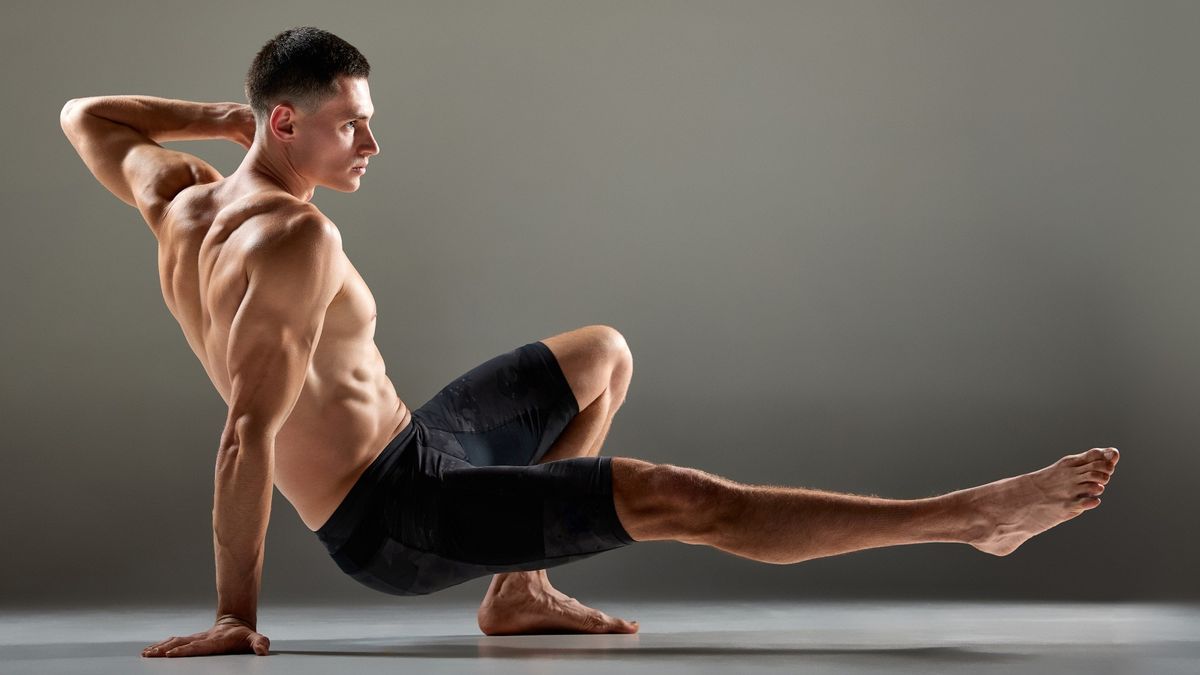Throw the weights aside (no, not literally), because this spicy bodyweight workout taps into animal flow, calisthenics and mobility work to build full-body strength, flexibility and endurance — packed into one short 15-minute routine.
“Don’t forget to drink plenty of water and breathe during the workout,” says movement and fitness coach Leo of LeoMoves. Leo draws on exercise styles like calisthenics, breakdancing, breakletics, gymnastics, acrobatics and functional training to encourage people to tap into the full movement potential of their bodies.
We love this workout at Tom’s Guide and think you could too. Grab one of the best yoga mats for your home workouts, then scroll on to watch the full video with some of our own tips for maximizing your time spent on the mat.
Watch the LeoMoves 15-minute bodyweight workout video:
“To help you focus on the workout, I give countdowns, tell you when to change position and when to start,” advises Leo. If you’re unfamiliar with this style of workout, we strongly recommend watching it a few times first and practising the movement patterns.
Unlike “traditional” resistance training, you don’t have sets or reps of specific exercises to work through. Instead, the routine runs more like a flow or sequence, similar to how yoga and animal flow routines feel.
It’s like learning a dance, so you’ll need to get familiar with the moves and learn how to transition from one to the next properly while using your body’s ability to control, balance and coordinate as you bring them together.
You’ll get some rest, but not a huge amount, so be consistent with your energy and try to move in time with Leo where possible.
![Bodyweight Workout To Move Well [3 Rounds] - YouTube](https://img.youtube.com/vi/xas8bykH4Lw/maxresdefault.jpg)
Watch On
“Sequences of motion” is a key term used to describe animal flow style workouts. In this case, think strength training in combination with yoga. We love it because you can strengthen your bones, joints and muscles through low-impact movement.
Yet the workout is still challenging, kicks up your heart rate, requires practice and taps nicely into mobility and flexibility training. That means, over time, you can build flexibility, boost posture and stretch multiple muscle groups while getting stronger and fitter.
The short but effective bodyweight workout builds stronger core muscles, but you’ll need a degree of existing core strength to help you drive the movement with control and stability. If you know this isn’t your strong suit, practice and build slowly, piecing the workout together as you improve your skillset.
These sorts of workouts also help improve proprioception — your body’s awareness of where it is in space, and something that gymnasts and athletes, in particular, have buckets of. Again, this feeds into your ability to balance and control your movements.
Trainer verdict

Trainer and senior writer at Tom’s Guide, covering topics from weightlifting to yoga and recovery.
I’m a big fan of intelligent workouts and creative programming. I started adding these sorts of routines to my own classes after trying animal flow for the first time a while back.
It takes a lot of awareness to move your body through a complicated range of motion with complete control while focusing on consciously squeezing the working muscle groups as you move.
Bodyweight training develops the mind-muscle connection (essentially, a conversation between the nervous system and your muscle groups), strengthening the neuromuscular system — the combination of breathing, movement and posture.
If you currently have an injury, are pre or post-natal, suffer from lower back pain, or struggle with joint conditions, exercise with caution and speak with a qualified medical physician if you’re unsure whether or not an exercise routine is safe for you.
Any workout that can combine strength work with better mobility gets a big tick from me; I nag clients to include more mobility work in their routines to help improve movement patterns during exercise and prevent unnecessary strain and injury.
There’s even research to suggest repetitive and rhythmic motions can positively impact your body mentally. One study found better cognitive function and working memory following “meditative movement.” It’s a win-win in my books.
More from Tom’s Guide
link

